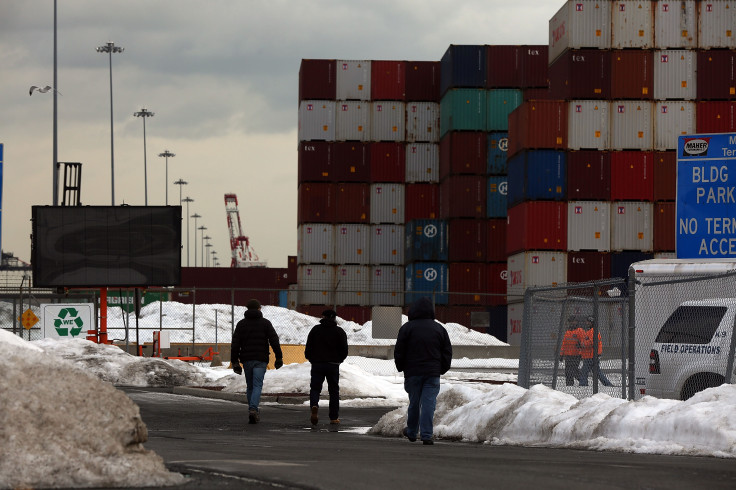
A strike by dockworkers at key U.S. ports on the East Coast and Gulf of Mexico is set to begin Tuesday after failed negotiations between the International Longshoremen's Association (ILA) and the United States Maritime Alliance (USMX). This labor dispute threatens to disrupt national supply chains, delay shipments, and worsen inflation just ahead of the holiday season.
Why Are U.S. Port Workers Striking?
The ILA represents around 85,000 dockworkers. The labor union accuses the USMX, which represents employers in the shipping industry, of ignoring their demands for wage increases and opposing terminal automation projects that could impact jobs.
"Throughout the pandemic, Longshore workers never took a day off– The very corporations that profited off our hard work refuse to share those profits with the workers who make them possible," ILA's Executive Vice President Dennis A. Daggett said in a Sept. 20 press conference.
"Strikes are never easy, but in today's world, with labor laws stacked against us and corporate greed at an all-time high, it remains one of the most powerful tools we have in our fight for justice,"
How Would A Port Strike Affect The Economy?
If the strike goes forward, it will be the first coast-wide ILA strike since 1977, affecting 14 major ports from Maine to Texas that handle over 68% of U.S. containerized imports.
This strike could have widespread economic effects, potentially costing the U.S. economy up to $5 billion per day, according to J.P. Morgan. Shipping delays would likely result in shortages of consumer products, including automobiles, electronics, alcoholic beverages, and perishable items such as fruits and vegetables, Investopedia predicted.
Many retailers have taken precautions, stocking up ahead of the strike to mitigate potential shortages. Jonathan Gold, vice president of supply chain and customs policy for the National Retail Federation, told CNN that "about 70% of holiday goods have already been shipped, but any further delay could still cause disruptions." Despite these efforts, experts warn that prolonged strikes could take weeks or even months to resolve, leaving supply chains in disarray.
Margaret Kidd, a logistics expert from the University of Houston, noted that although robust inventories might soften the immediate impact, a longer strike could lead to noticeable shortages and price increases. "I don't see this strike lasting long because the economic impact would be too severe," she told ABC13, adding that federal intervention could become necessary if the strike continues for an extended period.
President Joe Biden Won't Intervene
Despite the growing concerns, President Joe Biden has reiterated that he does not plan to intervene in the dispute. "It's collective bargaining. I don't believe in Taft-Hartley," Biden stated, referring to the law that allows presidents to impose an 80-day cooling-off period in labor disputes that threaten national security or the economy. According to Reuters, White House officials have, however, been in contact with both the ILA and USMX, urging them to reach a resolution quickly, but no further negotiations are currently planned before the strike deadline.
The Business Roundtable, a group representing U.S. business leaders, expressed deep concern about the potential economic fallout, warning that the strike could cost billions of dollars a day, hurt businesses, and raise costs for consumers nationwide. "We urge both sides to come to an agreement before Monday night's deadline," CEO Joshua Bolten said in a statement.
Economists are also watching inflation trends closely, as the strike could lead to higher consumer prices, just as inflation had begun to moderate in recent months. Some analysts, including Kidd, believe the economic pressure will push for a swift resolution. "I don't see this lasting for months," Kidd emphasized to ABC 13, hinting at the likelihood of federal action if the situation becomes critical.
In the meantime, businesses and consumers alike are left to watch the clock as the strike deadline approaches.
© 2024 Latin Times. All rights reserved. Do not reproduce without permission.









